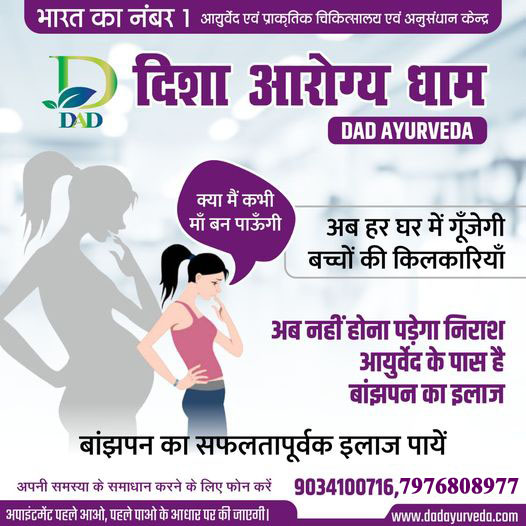Introduction
The Ayurveda Cancer Book is an essential resource for anyone interested in Ayurveda cancer treatment. It offers insights into cancer from an Ayurvedic perspective, helping readers better understand this disease.
- Importance: With cancer being a major global issue, exploring its treatment through Ayurvedic practices is a promising option. Combining ancient wisdom with modern medicine could potentially transform patient care.
- Main Point: Learning about cancer from an Ayurvedic standpoint not only expands our approach but also improves existing management and treatment methods. This highlights the importance of Ayurvedic education in places like Jaipur for those dedicated to holistic healthcare solutions.
By combining traditional and modern approaches, we create new opportunities for effectively fighting cancer, making Ayurveda an essential part of integrative oncology.
Understanding Cancer in Ayurveda
In Ayurvedic medicine, cancer is viewed through a unique perspective that combines ancient wisdom with modern insights. This alternative understanding offers an in-depth look at how Ayurveda perceives cancer.
Definition and Classification
Ayurveda defines cancer as a condition where there is an imbalance in the body’s natural energies or doshas—Vata, Pitta, and Kapha. This imbalance leads to what is known as “Arbuda” or malignant tumors, which are chronic in nature. The classification of cancer in Ayurveda aligns with the disturbance of these doshas, with each type of cancer being linked to specific bodily imbalances.
Key Principles
Key principles of Ayurvedic medicine related to cancer focus on restoring balance within the body. This involves:
- Detoxification: Known as Panchakarma, a vital process for cleansing the body.
- Herbal Medicine: Utilization of herbs such as Ashwagandha, Turmeric, and Guduchi known for their anti-cancer properties.
- Rasayana Therapy: Aimed at rejuvenation and promoting longevity, crucial for cancer patients.
These principles highlight Ayurveda’s holistic approach, emphasizing prevention and personalized care over generalized treatment protocols.
Comparative Approaches
The main difference between conventional and Ayurvedic approaches lies in their methods. Conventional cancer treatment often relies on surgery, chemotherapy, and radiation. It targets the disease itself aggressively. On the other hand, Ayurveda suggests a gentler but comprehensive strategy that includes lifestyle changes, dietary adjustments, mental wellness practices along with herbal treatments.
This integrative method seeks not only to treat the symptoms but also to address underlying causes by harmonizing mind, body, and spirit.
This distinctive approach underscores the potential benefits of considering alternative perspectives like those found within Ayurvedic frameworks when contemplating cancer care strategies.
Understanding Cancer Treatment in Ayurveda
Cancer therapy in Ayurveda focuses on the powerful healing abilities of natural elements, especially herbal medications. These remedies are the foundation of Ayurvedic treatment for cancer, using herbs like Ashwagandha, Turmeric, and Neem to strengthen the immune system and slow down tumor growth. Ayurveda recognizes that each herb has a specific role—such as cleansing the body, boosting energy, or supporting certain organs.
Herbal Medications
Herbal medications are central to Ayurvedic cancer treatment. They use natural ingredients to support the body’s healing process. Some commonly used herbs include:
- Ashwagandha: Known for its immune-boosting properties.
- Turmeric: Contains curcumin, which has anti-inflammatory effects.
- Neem: Used for its detoxifying qualities.
Diet and Lifestyle Changes
In addition to herbal remedies, diet and lifestyle changes are crucial in managing cancer from an Ayurvedic perspective. A diet rich in fresh fruits, vegetables, and whole grains is recommended to maintain balance in the body or dosha balance. Ayurvedic practitioners often advise avoiding processed foods to minimize toxin intake.
Lifestyle modifications may include:
- Regular yoga sessions
- Meditation practices
- Specific breathing exercises
These activities help reduce stress levels and improve mental well-being—important factors in managing chronic illnesses like cancer.
Personalized Healing
Ayurveda places great importance on personalized healing. It acknowledges that each person’s constitution or prakriti is unique, so treatments are customized accordingly. This approach involves selecting suitable herbs and dietary plans based on an individual’s needs.
Moreover, emotional and psychological factors contributing to a person’s health condition are also taken into account during treatment planning.
Integrative Approach
The integrative aspect of Ayurveda Naturopathy promotes combining these personalized therapies with modern medical practices when necessary. This holistic approach aims for comprehensive patient care by addressing both physical and mental aspects of health.
In summary, Ayurveda’s approach to cancer treatment stands out due to its combination of herbal remedies, dietary adjustments, and individualized attention. This ancient practice seeks harmony within the body as a pathway to healing—a philosophy that continues to resonate in contemporary healthcare discussions.
Disha Arogya Dham and Pankaj Rohilla’s Contributions to Ayurvedic Cancer Research
Disha Arogya Dham is a leading center in Ayurvedic healthcare, focusing on promoting holistic health practices, especially for cancer treatment. Their mission is to combine traditional Ayurvedic knowledge with modern healthcare needs, offering alternative cancer therapies. They prioritize natural remedies and personalized care plans based on individual patient requirements, staying true to the fundamental principles of Ayurveda.
Pankaj Rohilla, a well-known expert in Ayurvedic sciences, has made significant contributions to cancer research within this framework. As the founder of the Pankaj Rohilla Institute of Higher Education and Research, he has played a crucial role in connecting traditional practices with contemporary scientific exploration. His efforts go beyond leading an institution; they also involve extensive research and educational initiatives aimed at validating and improving the effectiveness of Ayurvedic treatments.
Key achievements:
- Establishment of the Institute: Under Pankaj Rohilla’s guidance, the institute has become a hub for scholarly activity and practical application. It provides a platform for rigorous academic research into Ayurvedic therapies, focusing on their potential to complement conventional cancer treatments.
- Educational Endeavors: Through workshops, seminars, and publications like the Ayurved Cancer Book, Pankaj Rohilla has disseminated critical insights into how Ayurveda can play a role in cancer management. These resources are invaluable for practitioners and students aiming to deepen their understanding of integrative oncology.
The work at Disha Arogya Dham and by Pankaj Rohilla exemplifies a commitment to advancing Ayurvedic medicine’s role in modern healthcare, illustrating its potential as a complementary approach to cancer treatment. This is supported by various studies indicating that Ayurvedic medicine can be beneficial when integrated with conventional treatment methods. Moreover, the center’s emphasis on natural remedies further aligns with the fundamental principles of Ayurveda, reinforcing its efficacy in managing health conditions like cancer.
Chikitsalya and Research Centre: Bridging Tradition with Science in Cancer Care
The Chikitsalya and Research Centre is a pioneering institution that combines traditional Ayurvedic knowledge with modern scientific methods. Their goal is to use evidence-based research to validate the effectiveness of Ayurvedic practices in treating cancer. This approach is essential for connecting ancient healing traditions with current medical practices.
Evidence-Based Approach
At the heart of the centre’s work is a commitment to scientific validation. This involves:
- Conducting thorough studies on various Ayurvedic treatments for cancer
- Publishing research findings in reputable journals
- Engaging with global scientific communities to discuss and debate their findings
Importance of Research
Research plays a crucial role in this initiative. It helps:
- Establish a strong foundation of scientific literature in Ayurveda
- Provide empirical evidence supporting Ayurveda’s role in cancer care
- Enhance understanding of how personalized herbal formulations and lifestyle changes can complement conventional treatments
Global Collaboration
The centre understands the importance of working together with other experts worldwide. By fostering collaborations, they can:
- Expand their research horizons
- Advocate for the inclusion of Ayurveda alongside allopathic methods
- Contribute significantly to the global conversation on integrative oncology
Through these efforts, the Chikitsalya and Research Centre aims to demonstrate the potential of Ayurveda as an important part of modern cancer therapy, ultimately improving patient outcomes through a more holistic approach.
Resources for Learning about Ayurveda and Cancer Treatment
Exploring Ayurveda to understand cancer treatment can be enhanced by using a variety of resources. Here are some recommendations:
1. Ayurved Cancer Book
This essential read offers diverse perspectives on Ayurvedic practices in cancer care. It covers a range of topics from epigenetics to herbal medications, providing valuable insights for both students and practitioners.
2. The Complete Guide to Herbal Remedies for Cancer by Dr. Sangeeta Phougat
For those looking to broaden their understanding, this text provides an extensive overview of how herbal remedies are utilized in cancer treatment from an Ayurvedic viewpoint, making it a significant addition to your reading list.
3. Online Platforms with Courses and Webinars
In addition to these texts, there are several online platforms offering courses and webinars that integrate traditional Ayurvedic knowledge with modern medical practices. These platforms cater to individuals seeking holistic approaches to patient care:
- Ayurveda.com: Offers courses focusing on the integration of Ayurveda with contemporary medicine.
- DAD Ayurveda Academy: Provides webinars and online classes emphasizing personalized healing strategies.
4. Research Articles on Ayurveda and Cancer
Engaging with academic literature can also provide deeper insights into the subject. For instance, this study explores the role of Ayurveda in cancer treatment, shedding light on its potential benefits and applications.
By engaging with these resources, you can gain a deeper understanding of how Ayurveda can complement conventional cancer treatments, leading to more integrative healthcare practices.
Conclusion: The Future of Integrative Oncology with Ayurveda at Its Core
Combining Ayurvedic medicine with modern cancer treatment offers new ways to improve patient care. The Ayurved Cancer Book is a detailed resource that highlights the importance of blending traditional methods with current therapies. This approach not only expands treatment choices but also fits with Ayurveda’s personalized healing principles.
When these methods are used together, there’s a strong possibility for better patient outcomes in tough diseases like cancer. More research and clinical trials will provide stronger evidence for this combination, giving hope to those looking for comprehensive and effective cancer treatments.
Using Ayurveda’s ancient knowledge along with scientific progress can create new therapy options. It’s crucial to involve healthcare providers, scientists, and patients in this conversation to develop a more inclusive and successful way of treating cancer, moving towards a future where old and new practices work together seamlessly.
FAQs (Frequently Asked Questions)
What is the Ayurved Cancer Book and its significance?
The Ayurved Cancer Book offers a comprehensive understanding of cancer through an Ayurvedic lens, emphasizing the importance of integrating Ayurvedic principles in cancer treatment and management.
How does Ayurveda define and classify cancer?
In Ayurveda, cancer is understood through a holistic framework that includes its definition and classification based on the balance of doshas (body energies) and the overall health of the individual. Key principles involve addressing the root causes rather than just symptoms.
What are some common herbal medications used in Ayurvedic cancer treatment?
Ayurveda utilizes various herbal remedies for cancer treatment, including but not limited to turmeric, ashwagandha, and neem. These herbs are believed to support the body’s natural healing processes and enhance overall wellness.
What contributions has Pankaj Rohilla made to Ayurvedic cancer research?
Pankaj Rohilla has significantly advanced Ayurvedic cancer research through his establishment of the Pankaj Rohilla Institute of Higher Education and Research, focusing on promoting Ayurvedic healthcare practices specifically related to cancer treatment.
How does the Chikitsalya and Research Centre support Ayurvedic practices?
The Chikitsalya and Research Centre validates Ayurvedic practices for cancer treatment by employing scientific research methodologies. It publishes studies that support the efficacy of specific Ayurvedic interventions for various types of cancers.
What resources are available for learning about Ayurveda and its approach to cancer treatment?
There are numerous resources available for those interested in Ayurveda and cancer treatment, including recommended readings like ‘The Complete Guide to Herbal Remedies for Cancer’ by Dr. Pankaj Rohilla, as well as online courses and webinars that integrate traditional Ayurvedic knowledge with modern medical practices.








